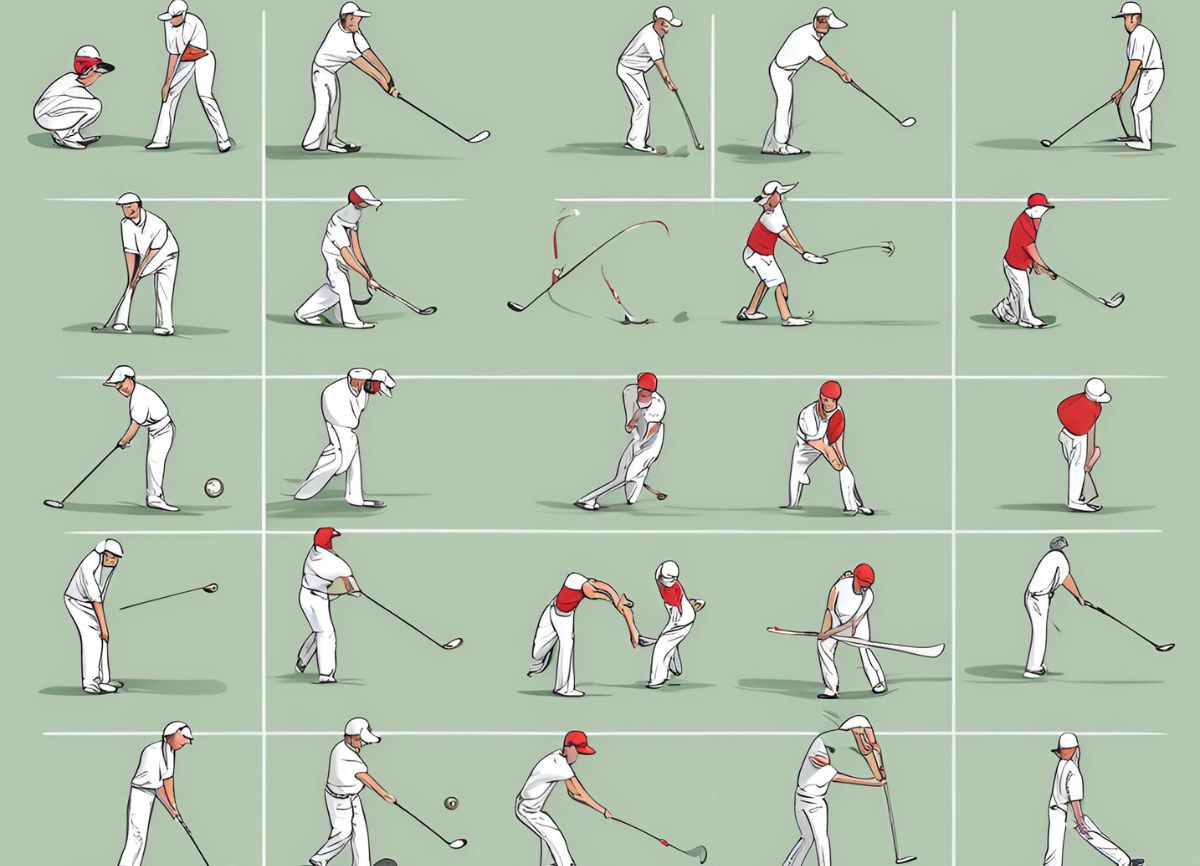The psychological aspect of golf is equally as demanding as its physical requirements.
As the legendary amateur Bobby Jones once said, “Golf is played mainly on a five-and-a-half-inch course… the space between your ears.”
To excel in this demanding sport, golfers must master not only their swing but also their minds.
This article explores essential sports psychology techniques that can help golfers of all levels improve their mental game and, consequently, their performance on the course.
1. Staying Present: The Power of Now
One of the most crucial aspects of golf psychology is learning to stay in the present moment.
Many golfers fall into the trap of getting ahead of themselves, planning their entire round before they’ve even teed off.
This mental wandering can lead to loss of focus and poor shot execution.
To combat this, practice mindfulness on the course.
Focus on the task at hand – the current shot you’re facing.
Refrain from dwelling on previous errors or anticipating future results.
Remember, you can only control what’s happening in the present moment.
Technique: Before each shot, take a deep breath and bring your attention to your surroundings.
Notice the feel of the club in your hands, the wind on your face, or the texture of the grass beneath your feet.
This straightforward technique can promote mindfulness and keep you grounded in the current moment.
2. Reframing Negative Thoughts
Negative self-talk can be a golfer’s worst enemy.
When you hit a poor shot, it’s easy to fall into a spiral of self-criticism.
However, this negativity often leads to tension and more mistakes.
Instead, practice reframing negative thoughts into positive or neutral ones.
View each shot, good or bad, as a new challenge and an opportunity to learn.
Technique: Implement the “10-yard rule.” After a bad shot, allow yourself to feel frustrated only until you’ve walked 10 yards. After that, let it go and focus on the next shot.
3. Visualization: Seeing Success
Mental imagery is a potent technique employed by top-tier golfers to boost their on-course results.
By mentally rehearsing successful shots, you can build confidence and improve your actual execution.
Technique: Before each shot, take a moment to visualize the ball’s flight path and landing spot.
See it clearly in your mind’s eye. However, remember that visualization is not about controlling outcomes but about preparing your mind and body for the task at hand.
4. Developing a Pre-Shot Routine
A regular pre-shot sequence can enhance your concentration and self-assurance, particularly in high-stakes situations.
It serves as a mental trigger, signaling to your body and mind that it’s time to perform.
Technique: Develop a straightforward, consistent pre-shot process tailored to your preferences.
Your routine could involve elements such as a practice swing, mental imagery of the intended shot, and a moment of focused breathing prior to setting up the ball.
5. Emotional Management
Golf can be an emotional rollercoaster. Learning to manage your emotions, especially after a bad shot or hole, is crucial for maintaining consistency throughout your round.
Technique: Practice acceptance. Acknowledge your emotions without judgment, then let them go.
Remember, one bad shot doesn’t define your entire round. Focus on what you can control – your next shot.
6. Building Confidence
Confidence is key in golf. It affects everything from club selection to shot execution.
However, confidence isn’t about never making mistakes; it’s about believing in your ability to recover from them.
Technique: Keep a “success journal.” After each round, write down three things you did well.
Consistently engaging in this technique can create a mental stockpile of uplifting memories, which may be accessed to boost confidence and resilience when facing difficulties while golfing.
7. Goal Setting
Setting realistic, process-oriented goals can help maintain motivation and focus.
Instead of fixating solely on the score, set goals related to your mental game and course management.
Technique: Before each round, set one mental goal (e.g., staying present for every shot) and one strategic goal (e.g., smart club selection on par 3s).
Evaluate your performance on these goals post-round, regardless of your score.
8. Mindful Practice
The driving range is not just for physical practice; it’s also an opportunity to hone your mental skills.
Use your practice time to simulate on-course scenarios and practice your mental techniques.
Technique: During range sessions, practice your pre-shot routine, visualization, and staying present for each shot. Treat each ball as if it were a shot on the course.
9. Embracing Pressure
Pressure is an inevitable part of golf, especially in competitive situations.
Instead of trying to eliminate pressure, learn to embrace it as a natural part of the game.
Technique: Reframe pressure as excitement. The physiological responses are similar, but viewing it as excitement can lead to improved performance.
Before a big shot, tell yourself, “I’m excited for this challenge.”
10. Continuous Learning
Every round of golf, whether good or bad, offers lessons.
Develop a growth mindset, viewing each experience as an opportunity to learn and improve.
Technique: After each round, conduct a brief mental debrief. Ask yourself: What did I do well mentally? Where did I struggle? What can I improve for next time?
Conclusion
Developing expertise in golf’s psychological aspects is an ongoing, career-spanning process.
These sports psychology techniques offer a starting point for golfers looking to improve their mental approach to the game.
Remember, like any skill, these techniques require practice and patience.
Make these techniques a regular part of your practice sessions and actual rounds. By doing so, you’re likely to notice enhancements not only in your psychological approach but also in your overall proficiency on the golf course.
By understanding and applying these sports psychology techniques, golfers can learn to play with greater consistency, enjoyment, and success.
Golf is as much about mastering your mind as it is about mastering your swing. So the next time you step onto the course, remember: your most important club is the one between your ears.





[…] ABC7 sports anchor Rob Fukuzaki has faced some health-related challenges but remains dedicated to maintaining […]